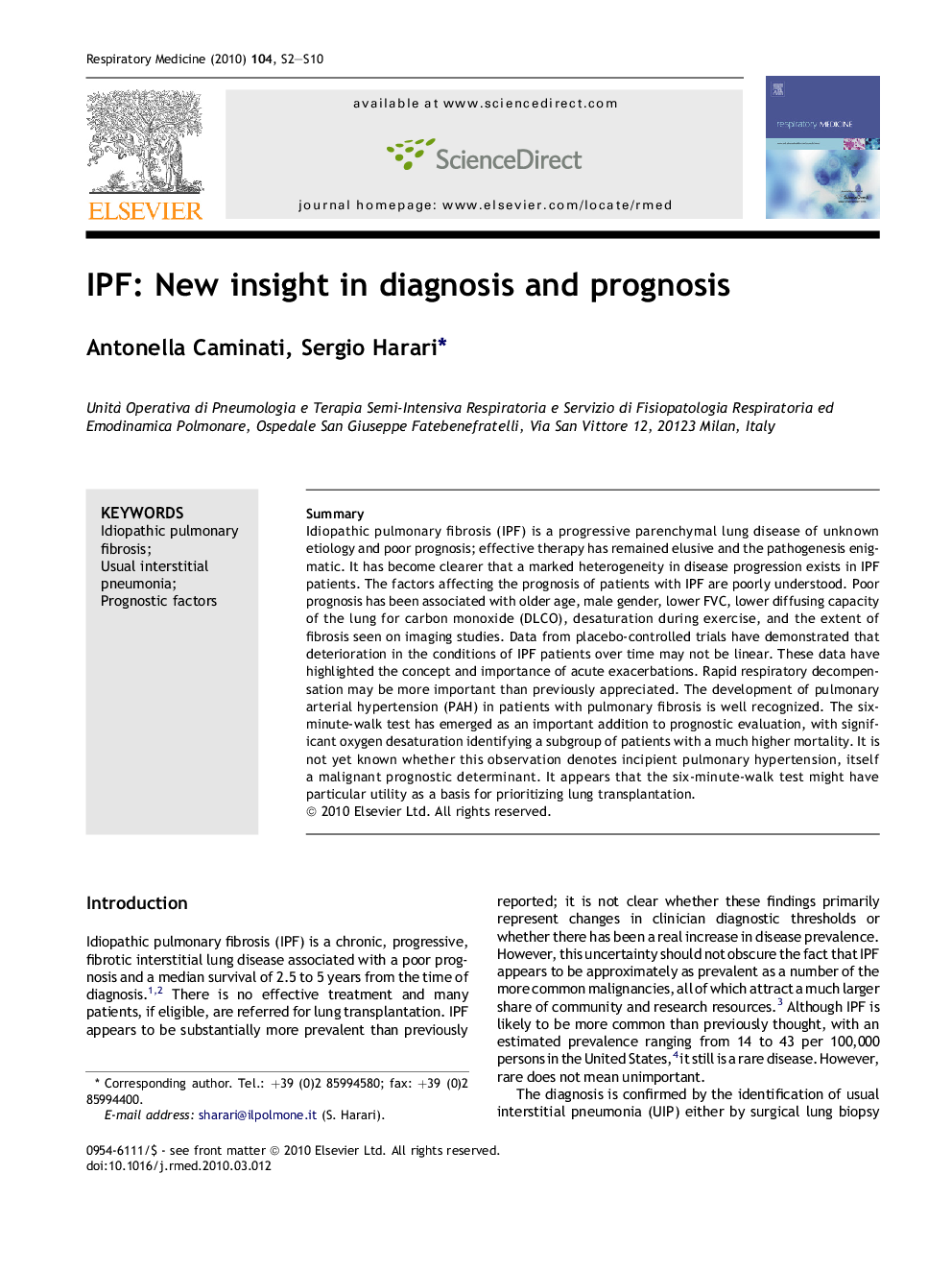| Article ID | Journal | Published Year | Pages | File Type |
|---|---|---|---|---|
| 4210699 | Respiratory Medicine | 2010 | 9 Pages |
SummaryIdiopathic pulmonary fibrosis (IPF) is a progressive parenchymal lung disease of unknown etiology and poor prognosis; effective therapy has remained elusive and the pathogenesis enigmatic. It has become clearer that a marked heterogeneity in disease progression exists in IPF patients. The factors affecting the prognosis of patients with IPF are poorly understood. Poor prognosis has been associated with older age, male gender, lower FVC, lower diffusing capacity of the lung for carbon monoxide (DLCO), desaturation during exercise, and the extent of fibrosis seen on imaging studies. Data from placebo-controlled trials have demonstrated that deterioration in the conditions of IPF patients over time may not be linear. These data have highlighted the concept and importance of acute exacerbations. Rapid respiratory decompensation may be more important than previously appreciated. The development of pulmonary arterial hypertension (PAH) in patients with pulmonary fibrosis is well recognized. The six-minute-walk test has emerged as an important addition to prognostic evaluation, with significant oxygen desaturation identifying a subgroup of patients with a much higher mortality. It is not yet known whether this observation denotes incipient pulmonary hypertension, itself a malignant prognostic determinant. It appears that the six-minute-walk test might have particular utility as a basis for prioritizing lung transplantation.
